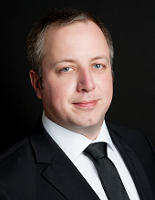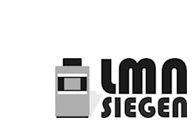Dr. rer. nat. Christian Wiktor
Post-Doc

Room: PB-A 409/2
Phone: +49 271 740-4111
Fax: +49 271 740-2545
Em@il: christian.wiktor(at)uni-siegen.de
Web: Researchgate
Address: Universität Siegen
Department Maschinenbau
Research Group for Micro- and Nanoanalytics & -tomography
Paul-Bonatz-Strasse 9-11
57076 Siegen
Christian Wiktor obtained a Diploma in Chemistry (Macromolecular
Chemistry) from the University of Cologne in 2009. His PhD studies at
the EMAT institute at the University of Antwerp and the chair for
Inorganic Chemistry II at the University of Bochum (2010-2014) were
focused on the characterization of metal-organic frameworks (hybrid
inorganic-organic porous coordination polymers) and other porous
materials via advanced transmission electron microscopy (TEM). Due to
the susceptibility of the materials to the high energy electrons
utilized in TEM and their complex structure and composition, it was
necessary to apply and adapt a wide array of different TEM techniques.
The
first postdoctoral stay at the Canadian Centre for Electron Microscopy
in Hamilton, Canada (2015-2016), was devoted to a study of a Lithium
transition metal oxide. Modern battery materials are commonly
susceptible to the electron beam as well and can feature intriguingly
complex crystal structures and elemental compositions. These challenges
were ideally suited to gain insight into the field of battery materials,
but also to deepen the understanding of crystallography and electron
energy loss spectroscopy.
The focus of the second postdoctoral stay at the Friedrich-Alexander Universität Erlangen-Nürnberg in Erlangen, Germany (2016-2018), was focused on in situ TEM studies of dynamic processes in solid state metal thin films at elevated temperatures. Time resolved observations of changing properties in in situ microscopy studies allows insights into processes which are otherwise unobtainable in ex situ experiments. The challenge of revealing these information can only be addressed by an automated script based evaluation of analytical data.
In Siegen, the experience with sensitive, complex materials is applied to new battery materials in situ experiments to gain insight into their structure and aging mechanisms. This knowledge will contribute to the design of new materials and batteries.
Aktualisiert um 1:52 pm am December 30, 2019 von Jonas Stötzel




